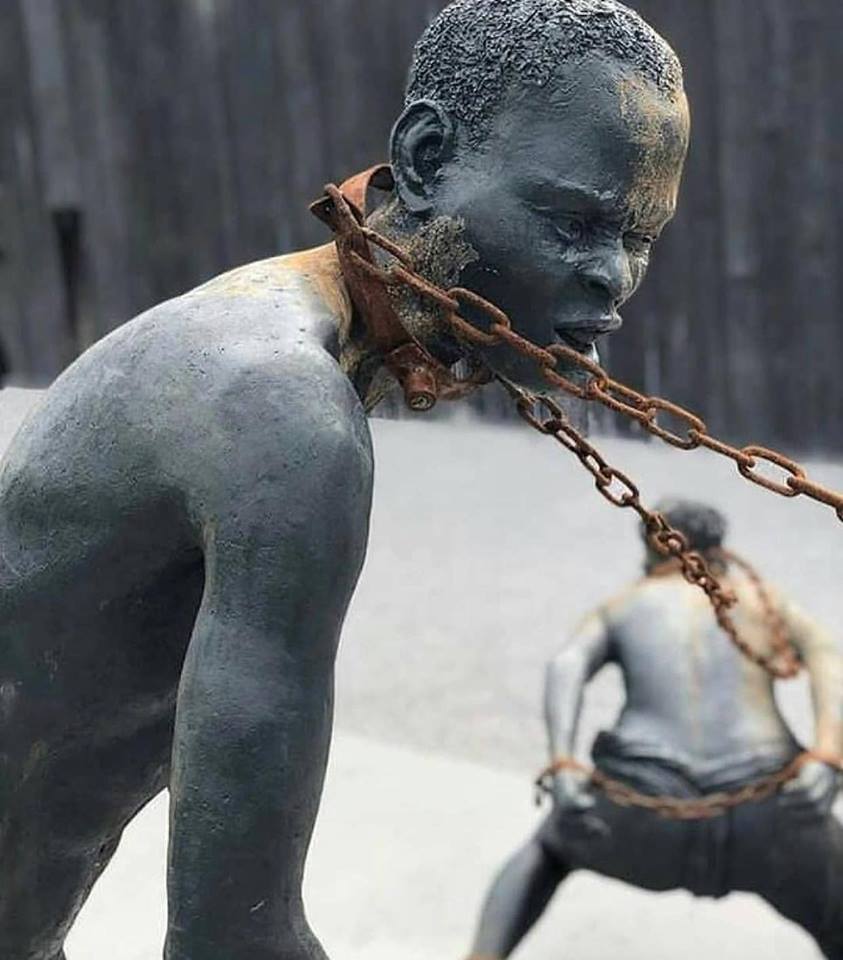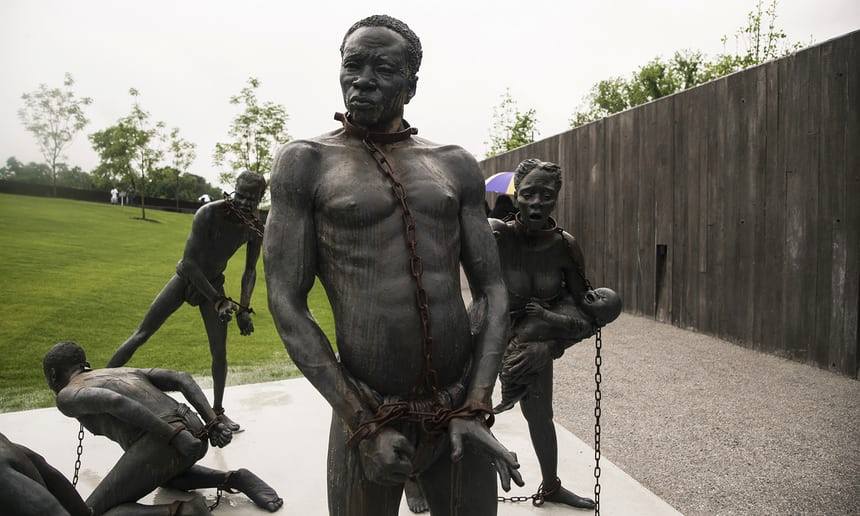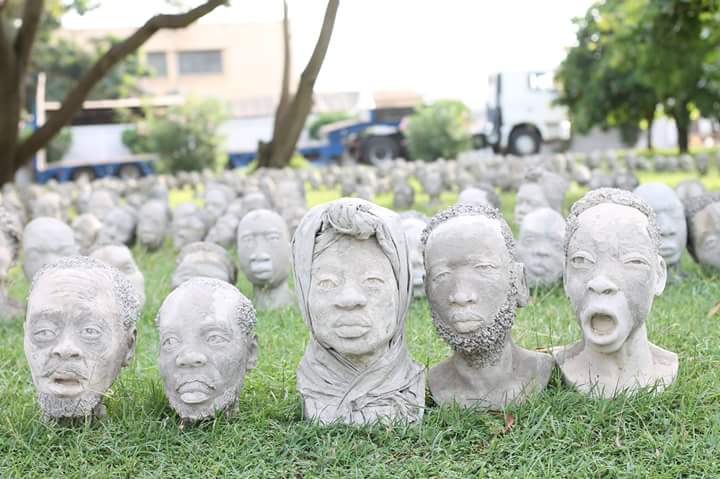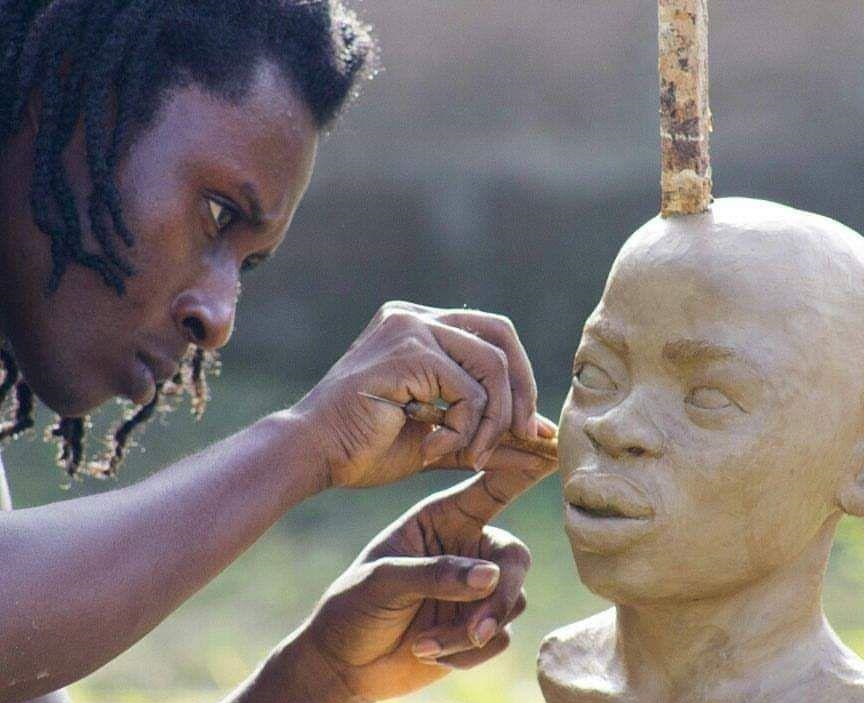Ghanaian sculptor, Kwame Akoto-Bamfo is passionate about the history of Africa and wants to denounce the horrific slavery era associated with the continent.
As an outdoor sculpture he has dedicated his life work to the memory of the victims of the slave trade.
Ghana is an important country in the slave trade era many centuries ago.
The country was one of the key exploitative regions on the continent where Africans were imprisoned, kidnapped and forced into slavery.
Akoto-Bamfo is using his skills to create what he calls the Ancestor Project.
The project has an installation of 1,200 concrete heads representing Ghana’s enslaved ancestors.
The cultural activist in a recent interview told the BBC that he is “trying to portray what our ancestors went through, trying to immerse in the enslavement experience all cut across 400 years.”

He explained that his portraits have “various people from different tribes. We have various states in which they were before they were captured.”
“There were those who were prisoners of war there those who were just purely kidnapped. There were those who were coerced. There were those who were clueless as to what was really happening,” he added.

Some of his portraits are human heads of the dead and Akoto-Bamfo explains that he is using human heads “because the art itself is paying homage to our ancient Akan practice of creating portrait of the dead.”

His work in memory of the victims of the Transatlantic slave trade is on display at the National Memorial for Peace and Justice that opened in 2018 in Montgomery, Alabama.
Abolishment of slave trade
The slave trade was established as early as the mid-17th century. Trading ships would set sail from Europe with a cargo of manufactured goods to the west coast of Africa.
Britain outlawed slavery in 1833 but it was abolished in the USA after the defeat of the Confederacy in the Civil War in 1865.

Despite that the transatlantic trade in African slaves continued. The main market for the slaves was Brazil, where slavery was not abolished until 1888.
The Atlantic slave trade or transatlantic slave trade involved the transportation by slave traders of enslaved African people, mainly to the Americas.
Source: Africafeeds.com


